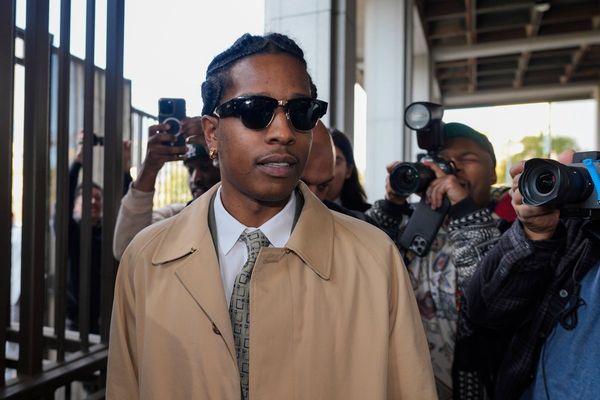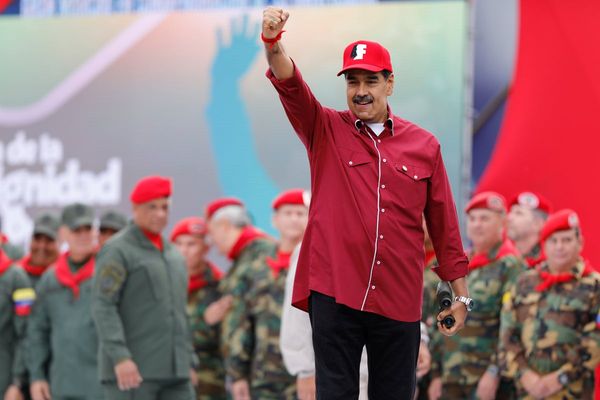Who can you trust in a world where there are no longer heroes and villains, where data is as deadly as missiles? Across Daniel Craig's 15-year tenure as James Bond (the longest reign of any actor, though both Sean Connery and Roger Moore each made more films), he's gone from rebooted, post-9/11 blunt instrument to a more familiar, high-espionage agent for the age of global surveillance – an identity crisis endemic to a franchise that's variously shaken, stirred and shamelessly serviced the expectations of its generations-spanning audience.
Even Craig seemed exhausted by the end of his fourth mission, the back-to-business Spectre (2015): "I'd rather slash my wrists," he replied when asked if wanted to make another Bond film.
You'll be glad he changed his mind. No Time to Die, the long-delayed 25th entry in the nearly 60-year-old spy series, might not fulfil the cultural reset promised by Craig's debut, Casino Royale (2006), but it's a big, brawny blockbuster that swings for the bleachers, sending him off with a resounding – and unexpectedly emotional – kiss and a bang.
When we last saw Bond, he'd tossed his Walther PPK into the Thames like some rom-com princess and was driving off into the sunset – albeit in the Aston Martin DB5 – with Dr Madeleine Swann (Léa Seydoux), psychiatrist daughter of a high-ranking SPECTRE assassin. (Of all the many, many women in his life, is it any wonder that Bond ended up falling for a shrink?)
No Time to Die finds Bond and Madeleine enjoying their European retirement, even if he still hasn't quite gotten over Vesper Lynd (Eva Green, cameoing as a headstone), the late MI6 operative who double-crossed him and broke his heart, and she's haunted by the memory of the kabuki-masked killer that tried to murder her family as a child.
Every couple has their issues.
"We have all the time in the world," he reassures her, although the callback to On Her Majesty's Secret Service (1969) – the only movie where Bond got hitched, with fatal results – isn't exactly a comfort to the viewer.
Before you can shout "No, time to die!", SPECTRE henchmen arrive to deliver their boss's violent regards, and there's a car chase that ends in an incredibly tense moment between Bond and Madeleine – the threat of betrayal hanging in the air like so much machine-gun fire.
Five years later, SPECTRE goons raid a bio-weapons lab and steal a deadly virus with the potential to wipe out millions – welcome back to the 'escapism' of blockbuster cinema – and Bond, kickin' it in the Caribbean, gets a visit from his old CIA pal Felix Leiter (Jeffrey Wright), who warns him their old nemeses are afoot. Just when he thought he was out…
Teaming up in Cuba with a fresh young operative, Paloma – Ana de Armas (Knives Out), oozing enough sass and style to suggest her own spinoff series – Bond pursues a turncoat Russian scientist (David Dencik) at a cocktail bash, where half of SPECTRE gets wiped out.
Pretty soon MI6 – M (Ralph Fiennes), Moneypenny (Naomie Harris), Q (Ben Whishaw) and Nomi (Lashana Lynch), the agent who's adopted the 007 mantle in Bond's absence – are holding the English end up, and everyone has questions.
Who or what could possibly be more sinister than SPECTRE? Just how is the heavily incarcerated Blofeld – Christoph Waltz, strangely underwhelming – continuing to exert influence over his minions?
Will the supercool Nomi, sporting hilariously tilted, deal-with-it shades, continue to use the 007 codename, much to the collective aneurysm of internet crybabies? (As Bond quips: "It's just a number.")
Since 2012's overstuffed but celebratory Skyfall, this ambitious, interlocking run of sequels – an experiment in continuity for this previously standalone film franchise – has grown more comfortable embracing its character's chequered cultural legacy; what began as a grim, back-to-basics reboot is now generously sprinkled with the series' classic tropes and self-aware sense of humour.
Sure, Craig's Bond is still affected by trauma, but unmistakably comic lines like "Q, hack into Blofeld's bionic eye and see what you can find" are clear nods to another, campier era, and the winks to the series' storied history are everywhere. (Fans will be thrilled to see the great Timothy Dalton's Aston Martin V8 make an appearance.)
Hell, there's even an Austin Powers gag – a visit to Q's apartment reveals his cat to be a dead ringer for Mr Bigglesworth.
Under the steady hand of incoming director Cary Joji Fukunaga (True Detective; Sin Nombre), there's a snap and sparkle to the movie, a sense of release that comes from a victory lap for its leading man.
The frequently amusing dialogue – credited to Phoebe Waller-Bridge (Fleabag), Fukunaga, and series vets Neal Purvis and Robert Wade – lets Craig have fun with some truly cheesy old Bond lines.
Meanwhile, an eardrum-shattering Hans Zimmer leans all the way in to the series' classically bombastic score; and Bohemian Rhapsody's Rami Malek, as the pale, scarred villain Lyutsifer Safin, has the quasi-futuristic tunic, island hideout and world domination plan (think DNA-targeting nanobots) lifted straight from the franchise's crackpot playbook.
"All you're doing is standing in a very long line of angry little men," a weary Bond retorts, after a typically deranged Safin ramble. Same as it ever was.
No Time To Die's smartest trick is to indulge the series' mythology while deepening its emotional contours, using our comfort-food familiarity with underwater spy vehicles, villainous lairs and breathless, ticking-clock countdowns as distraction while an unlikely tenderness sneaks in to knock you sideways.
Even within its epic, 163-minute run-time, the film has so much to juggle that it's inevitable that not everyone gets their moment. After her electric, wig-snatching introduction, Lashana Lynch's 007 gets largely relegated to sidekick (with a potential for future adventures), while Malek's limited screen time reminds us that the villains in this series have mostly existed to needle the trajectory of Bond's personal pathos – the real raison d'être of the Craig films.
For a series so reliant on Craig's physical, sensitively bruised performance – and he makes it look easier than it is – it's amusing to think that this final instalment succeeds not on grit and realism but old-fashioned movie manipulation: the five films revealed as nothing less than overarching soap opera. This isn't a criticism.
And if the series can't, after all these years and attempts, reconcile its Bond with the cultural and political vagaries of a new era, maybe it's because he can't be – because we'd never really want him to be – truly refashioned to fit with modern sensibilities.
No Time to Die completes Craig's Bond's journey from rough-hewn thug – a guy who memorably didn't give a damn how his vodka martini was prepared – to movie myth looming larger than the landscape itself. Whatever its successes and missed opportunities, it's been a ride.
No Time To Die is in cinemas from November 11.







